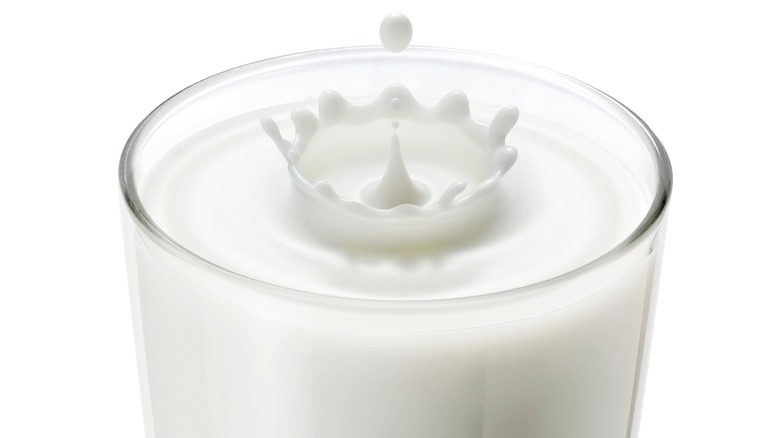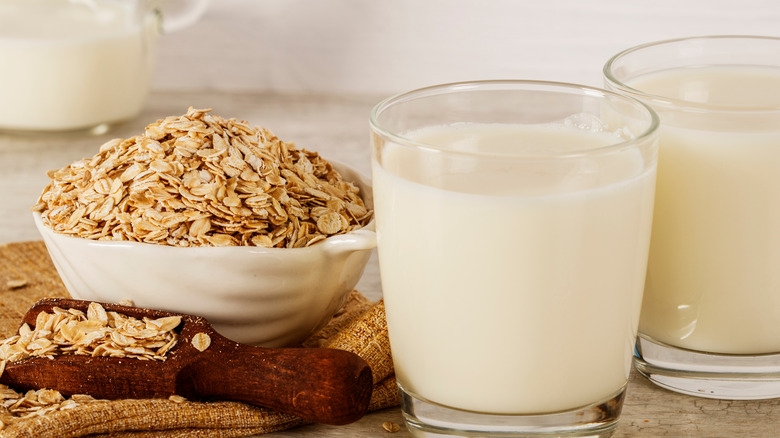Does Drinking Milk Really Increase Your Risk For Prostate Cancer?
From the milk cartons in school cafeterias to the milk in our cereal bowls, this beverage plays a key role in our diets. However, a new study published in The American Journal of Clinical Nutrition has linked milk with an increased risk of prostate cancer (per HealthDay News). The study looked at men who drank approximately 1.75 cups of milk per day on a regular basis, compared to men who had only one or two teaspoons of milk per day. The men who drank more milk daily had a 27% increased risk of developing prostate cancer. The men who drank more than a cup of milk per day were also compared to a group of men who didn't consume any milk or milk-based products at all — they had a 60% increased risk of prostate cancer, compared to non-dairy consumers.
Study author Dr. Gary Fraser, a professor of preventive medicine at the Loma Linda University School of Medicine and School of Public Health, has previously conducted similar research. He found a link between the consumption of milk and an increased risk of developing breast cancer (via HealthDay News). While he asserts that more research needs to be done to determine the risks of drinking milk, his advice to men with family histories of prostate cancer is to consider switching to a plant-based diet. Even decreasing the amount of regularly consumed milk may lower the risk of prostate cancer.
Other risk factors for prostate cancer
According to the American Cancer Society, prostate cancer is rare in men younger than 40, but the chance of developing prostate cancer rises substantially after age 50. Approximately 60% of prostate cancer diagnoses are in men over the age of 65, so age plays a vital role in a man's risk of prostate cancer. However, regardless of age, some men are genetically prone to developing prostate cancer at any age, especially if other men in their families have been diagnosed with it. The BRCA1 and BRCA2 genes, which have become known in recent years for genetic links to breast cancer, have also been linked to prostate cancer. An important part of prevention and awareness is simply knowing your family history.
Other preventative steps you can take to decrease your risk of prostate cancer include exercising regularly, maintaining a healthy weight, and not smoking, says the Mayo Clinic. Since obesity has been linked to an increased rate of prostate cancer, it's important to eat a nutritious low-fat diet and to strive for about 30 minutes of exercise several days a week. As you decrease the number of dairy products in your diet, it's advised that you increase the number of fruits and vegetables in your meals. If milk is something you love, try a plant-based milk option as a replacement.


